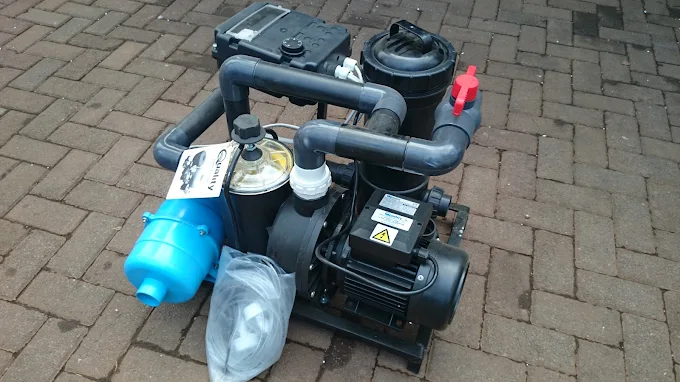
In today’s fast-paced digital world, businesses demand hosting solutions that deliver both exceptional speed and robust security. Spain Dedicated Server Hosting perfectly meets these needs by offering exclusive server resources dedicated solely to your business. This means your website or application enjoys unmatched performance, reliability, and a fortified security environment.
What is a dedicated server Hosting in Spain?
Dedicated Server Hosting in Spain refers to a web hosting service where a physical server located in Spain is exclusively assigned to a single client or business. This setup provides complete control over the server’s resources, such as CPU, RAM, storage, and bandwidth, ensuring high performance, enhanced security, and low latency for websites or applications targeting the Spanish or broader European market. Hosting a dedicated server in Spain offers the advantages of local data center infrastructure, compliance with European data protection regulations such as GDPR, and fast connectivity within the region, making it an ideal choice for businesses that require reliable, secure, and fast hosting tailored to their specific needs.
Which option to use for CPU is Intel Xeon or AMD EPYC?
Server providers typically provide their dedicated servers with CPUs designed for enterprise usage. Intel Xeon processors have a reputation for delivering steady performance, supporting a wide range of software, and exhibiting low energy consumption. On the contrary, AMD EPYC chips are well-known for their high core count and reasonable pricing, making them excellent for handling multiple software applications simultaneously, such as virtualization and big data analytics.
How RAM is Configured and the Ability to Increase It
Server performance, particularly when handling databases and in-memory applications, is significantly influenced by memory (RAM). Most Spanish dedicated servers come with 16GB of DDR4 RAM, which can be upgraded to 512GB based on your server’s specific tasks. Scalable RAM enables businesses to update their servers without requiring a physical relocation, allowing them to handle increased web traffic and more demanding applications.
A look at the methods of storage: SSD and NVMe
Choosing the kind of storage also affects how quickly you can work and how trustworthy the storage is. Data access is much faster with traditional Solid-State Drives (SSDs) than with mechanical drives. However, with NVMe drives, data can be transferred to the computer faster and with less delay, as they bypass the PCIe bus, making them ideal for running transactional databases, caching, and analyzing data in real-time. A large number of Spanish hosting providers give NVMe storage to accommodate the needs of today’s companies. Any strong, dedicated hosting solution depends on trustworthy network connectivity.
How Bandwidth is offered and what Guarantees exist
Spain’s dedicated servers are typically available with bandwidth options ranging from 100 Mbps to 10 Gbps, and some service providers offer clients large or unmetered bandwidth packages for high-traffic applications. Through Service Level Agreements (SLAs), network providers commit to maintaining network accessibility and usability.
Network Redundancy
To prevent outages caused by a single point of failure, Spanish data centers employ multiple methods to handle such situations. Backups for the power system, use of varied fiber links, and network hardware that is mirrored are included. Due to redundancy, both availability and recovery in the event of a disaster are enhanced for critical business services.
Full Managed Services
When you get managed dedicated servers, the provider handles proactive monitoring, routine fixing of security holes, data backups, software updates, and support. This is suitable for enterprises that either don’t have their own IT personnel or want to focus all their time on their primary business tasks. Typically, managed services incorporate firewalls, malware detection, and intrusion detection to safeguard data.
Benefits of Self-Management and What It Takes
Having an unmanaged dedicated server means the customer gets complete control, but the provider plays a minor role. This is a good fit for businesses that can manage complex technical chores because it allows customization, selecting applications, and improving configurations. At the same time, handling servers alone requires you to be very knowledgeable about administration, security, and performance.
Remote companies are increasingly offering hybrid options.
In hybrid models, some tasks, such as setting up services on the server and handling updates, are managed by the customer, while the provider handles infrastructure management and security. This keeps control high while making products easier to use, and everything can be configured as needed by the business.
Cloud and VPS Solutions are considered
A dedicated server offers specialized resources for your service, so there are no noisy neighbors, which also enhances security. Because cloud VPS can scale and change, dedicated servers provide significantly higher power and consistent performance, making them more suitable for power-intensive and continuous tasks.
The best situations for using dedicated servers in Spain
Several applications are well-suited for running on dedicated servers in Spain.
E-commerce and Websites with a lot of visitors
Stores processing numerous transactions daily through the internet rely on servers to enhance their website’s speed, secure financial information, and provide continuous service without downtime. E-commerce platforms serving European customers who set up servers in Spain should opt for PCI-compliant options with high bandwidth to ensure secure transactions.
To support multiplayer gaming and live streaming, applications must be connected with low latency and a high bandwidth. Because Spain’s data centers are high-speed and reliable, your gaming plays without lag or buffering.
Software working at the enterprise level and databases
Especially in large enterprises, having designed hardware makes ERP systems, customer databases, and analytics platforms reliable and flexible. Spain dedicated servers can be tailored to help a business grow without compromising performance.
These are known as Content Delivery Networks.
The position of Spain and its IXPs is why CDN nodes work well there. Static and dynamic elements are cached on the localized dedicated servers, which allows your site to load quickly for people worldwide.
Conclusion
For companies targeting European and nearby markets, Spain dedicated server hosting is an excellent choice due to its high speed, robust security, and favorable location. Due to the expanding data center network in Madrid and Barcelona, the service is dependable, with multiple backup connections, ensuring consistent performance. Due to the selection of processors, RAM, and fast storage, companies are free to design their hosting to handle any workload. With managed, unmanaged, or hybrid hosting options, companies can find a solution that suits their specific skills and needs. Following the GDPR and Spanish data protection laws gives companies confidence when processing such data, and having low costs helps them maintain their profits.






